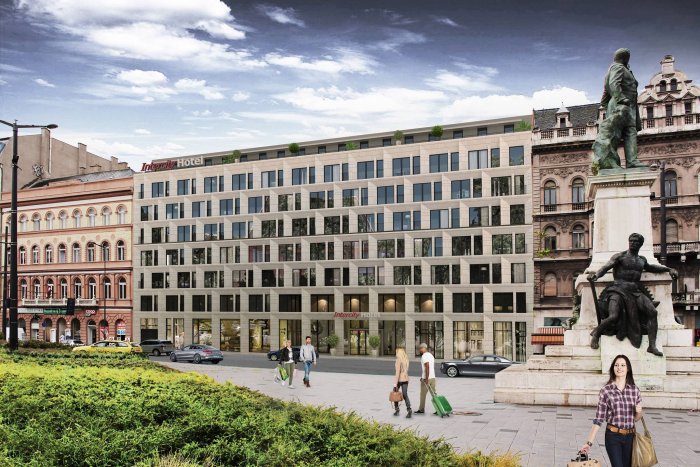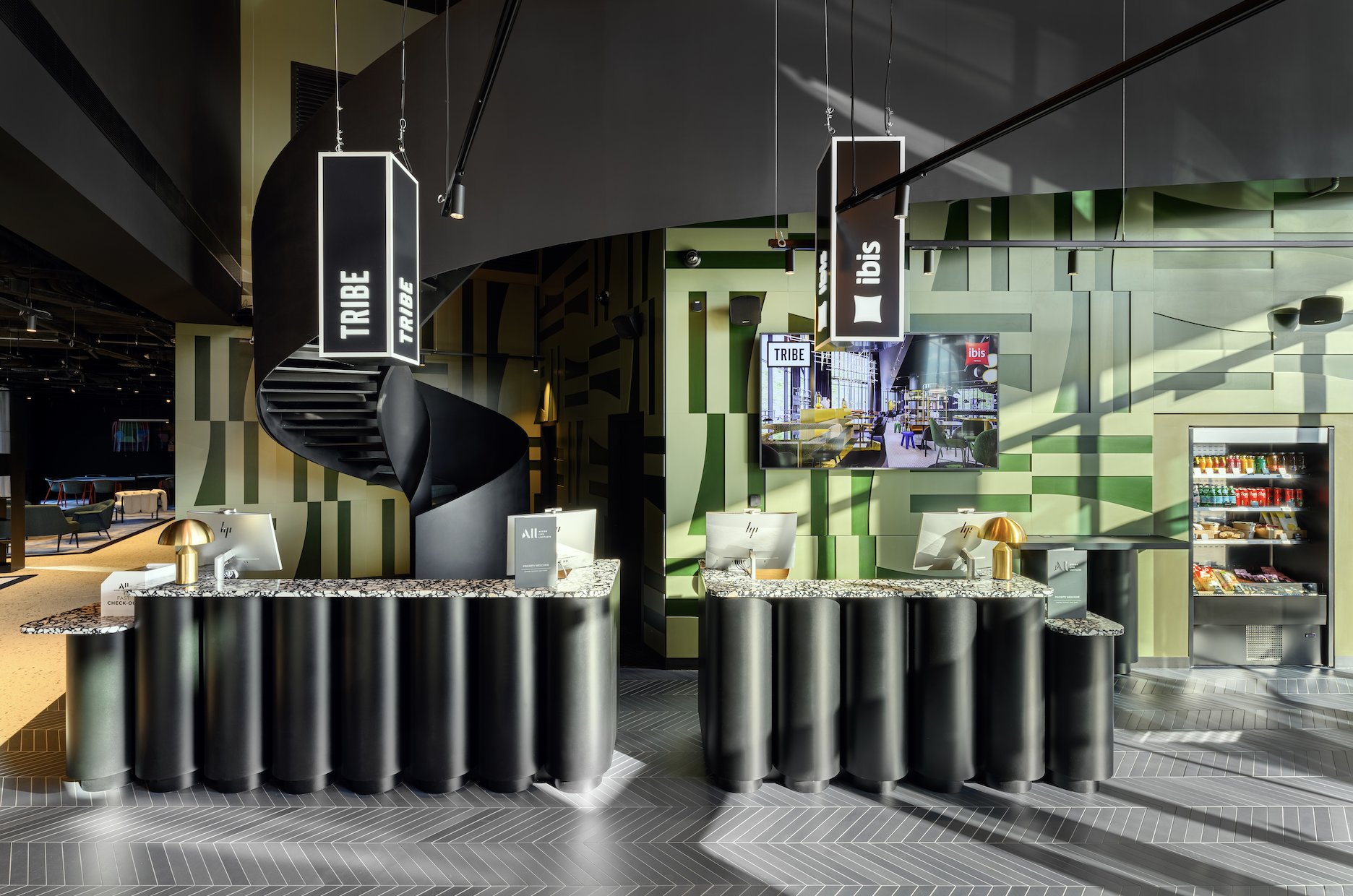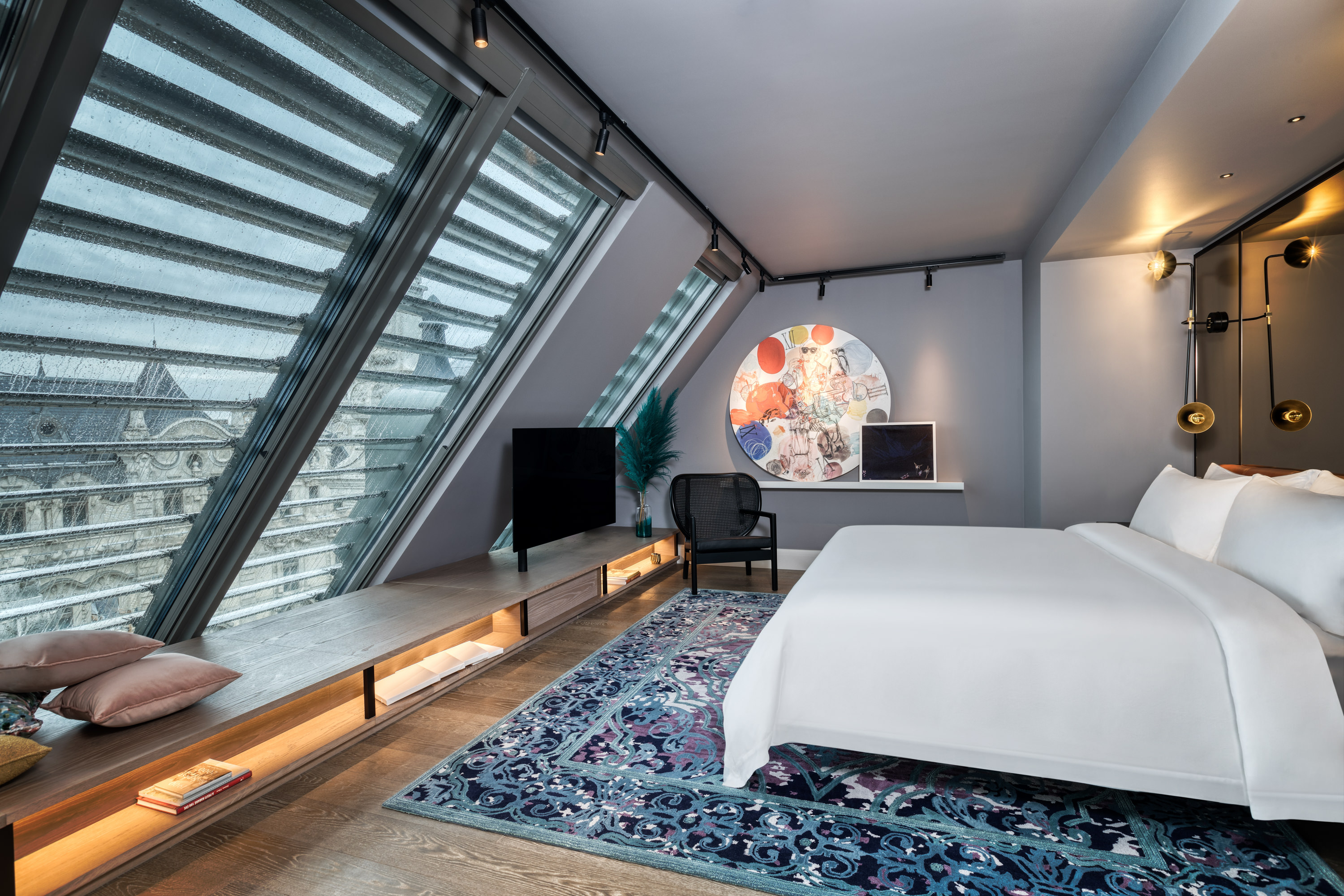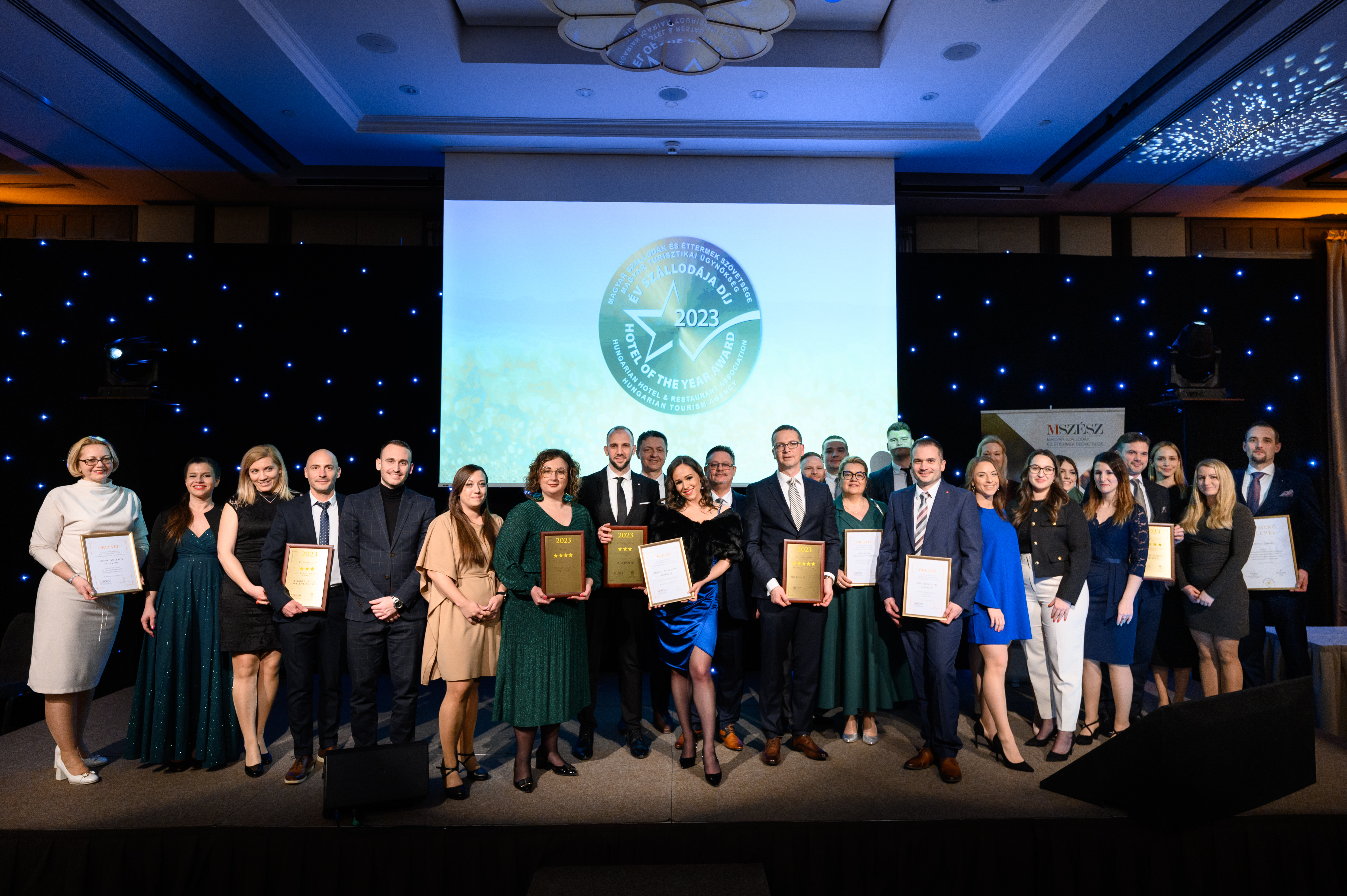Strong Guest Demand Attracting Hotel Developers

pr
Tourist visits to Hungary are continuing to rise with 5.5 million people visiting in the first half year, indicating a growth of more than 7% on the previous year. Developers, investors and hotel operators therefore all see the potential for hotel development.
Intercity Hotel
CBRE has traced a pipeline of around 18 three-, four- and five-star hotels under construction in Hungary, the clear majority of these in Budapest. However, due to the complex development process and a national labor shortage, scheduled delivery dates are slipping further into the future.
“Although we see a significant shift in planned completion dates throughout the country, construction activity has remained strong both in the capital and larger regional cities, with an expected delivery of circa 1,200 hotel rooms in ten individual schemes until the yearend,” CBRE says of the immediate hotel pipeline.
“Budapest is still the most preferred destination when looking at new development opportunities and eight out of ten new schemes under construction are indeed situated in the central areas of the capital, comprising circa 980 modern hotel rooms,” the consultancy added.
With regard to the uncertainty over completion dates, CBRE has monitored around 2,700 rooms in nine hotels that are under construction, while the overall pipeline comprises around 4,000 rooms, of which 3,400 are in Budapest. The difficulty of sourcing well-located development sites or properties suitable for redevelopment would seem to protect the market against saturation, with demand is still outpacing supply.
Central European capitals in Austria, Czech Republic, Hungary, Poland, and Slovakia have some of the highest hotel occupancy levels in Europe, according to Cushman & Wakefield. Prague is ranked fifth among global hotel markets with the highest hotel occupancy in Europe for 2017. Budapest ranked tenth with an occupancy rate of 77.5% compared to Prague with 80% and Vienna with 75.3%.
“The occupancy levels in many Central European markets are reaching peak levels and room rates are approaching those seen in Western Europe,” commented David Nath, head of CEE hospitality at Cushman & Wakefield on the figures.

Matild Palace Marriott The Luxury Collection.
Occupancy Down, RevPAR up
However, after a long period of sustained growth in its occupancy rate, Budapest has registered a year-on-year decline to 74% for the first half of 2018. That said, revenue per available room (RevPAR) continued to rise in the first half year by an average 5.4% year-on-year according to CBRE.
In the next significant delivery at the top end of the Budapest hotel market, the Hungary-based, Jordanian-owned hospitality developer Mellow Mood is due to complete the 110 room and suite Párisi Udvar Hotel in the historic center of Budapest by the end of the year, according to its latest completion date. The HUF 13 billion project has been designed by Archikon and a franchise agreement has been reached with Hyatt Unbound Collection.
The Art Deco Párizsi Udvar building dates back to the 19th century. The project has been under development for several years, reflecting the difficulties associated with the redevelopment of historic, listed building in the heritage protected center of the capital. Despite this, the large number of historic buildings in key central locations do provide the opportunity for redevelopment as boutique hotels, and thus provides development opportunities in central areas of the city where there is otherwise a limited provision of plots.
In the redevelopment of a UNESCO-protected historical building the five-star W Hotel Budapest on Andrássy út by QPR Properties (part of Constellation Holdings), has been at the planning stage for several years; the latest news is that it is now scheduled to deliver 160 rooms by 2022. The project will be the seventh W Hotel in Europe.
In another development on Andrássy út, the BDPST Group, owned by István Tiborcz, the son-in-law of Prime Minister Viktor Orbán, is planning to redevelop Andrássy 16 into a boutique hotel.

Dreschler Palace W Hotel Budapest.
High-end Pipeline
In another high-end pipeline project due for delivery this year, Accent Hotel Management is constructing the 4-5 star, 210-room Hilton Garden Inn Budapest in District VI. The Egyptian-owned Zenobia Hungary is due to deliver the 150-room, five-star Zenobia Palace Hotel in District VIII this year. Another top-end hotel, under reconstruction by the Turkish Özyer Group, Matild Palace, is scheduled to deliver the 130 room Marriott The Luxury Collection branded hotel in 2020.
In the medium level of the market, Bedori Investment is developing 184, three-star rooms at the 7,500 sqm Meininger Hotel Budapest in Csarnok tér, next to the Great Market Hall, in the third quarter of the year. The hotel will be operated by Meininger Hotels based on a 20 year lease. In the mid-range segment of the hotel market, the German Deutsche Hospitality in conjunction with the B&L Group has acquired construction permits for the 300-room and six conference room, 16,000 sqm InterCity Hotel Budapest, its first CEE InterCity Hotel, at Keleti Railway Station. The company has a policy of developing the brand at what it sees as key train stations and airport locations, and the Budapest project is scheduled to complete in 2020.
Budapest is regarded as part of a Central European “golden triangle” – the other points being Prague and Vienna – from a hotel investment perspective by many hotel investment analysts. Further positive hotel market data and the large pipeline is expected to provide opportunities for investors.
“As the markets continue to recover and finance becomes more available in some of the markets, it is expected that hotel development activity will grow further. However, in Prague, Budapest and Vienna it is relatively difficult to find available land or vacant properties in central locations that would allow for large hotel developments or conversions,” concluded Cushman & Wakefield.
Outside of the capital in Nyíregyháza (230 km northeast of Budapest) the 9,000 sqm Hotel Sóstó Spa & Resort is due to deliver 122, four-star rooms this year. In Gyöngyös (78 km northeast of the capital), the Avar Hotel by Aranypart 2000 is scheduled to deliver 98 rooms. Late last year, a deal was signed between the Marriott group and the Benedictine Archabbey of Pannonhalma (130 km west of Budapest) to convert a 300-year-old building complex at the UNESCO World Heritage site into a four-star hotel under the Autograph boutique brand, through an investment of HUF 5 billion. The government will support the project with a HUF 2.95 bln grant, it was announced at the time. The project was originally scheduled to open at Easter 2020, although that has since slipped somewhat.

Parizsi Udvar Budapest Hotel.
SUPPORT THE BUDAPEST BUSINESS JOURNAL
Producing journalism that is worthy of the name is a costly business. For 27 years, the publishers, editors and reporters of the Budapest Business Journal have striven to bring you business news that works, information that you can trust, that is factual, accurate and presented without fear or favor.
Newspaper organizations across the globe have struggled to find a business model that allows them to continue to excel, without compromising their ability to perform. Most recently, some have experimented with the idea of involving their most important stakeholders, their readers.
We would like to offer that same opportunity to our readers. We would like to invite you to help us deliver the quality business journalism you require. Hit our Support the BBJ button and you can choose the how much and how often you send us your contributions.








